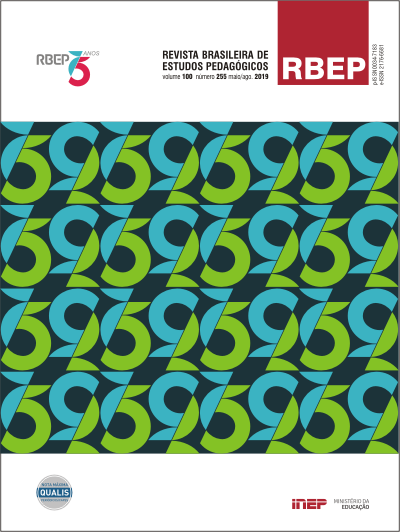High school students and higher education: clarifying the modus operandi of the grantees in the Institutional Program of Scholarships for Undergraduate Research (Programa Institucional de Bolsas de Iniciação Científica - Pibic)
Abstract
This study deals with policies for the training of basic education researchers and the reframing of its context; focused, empirically speaking, on Brazil’s Institutional Program of Scholarships for Undergraduate Research (or, in Portuguese, Programa Institucional de Bolsas de Iniciação Científica Pibic –EM) from the Federal University of Santa Catarina (Universidade Federal de Santa Catarina – UFSC), within the Junior Scientific Training. The modus operandi of the research subject is analyzed with an emphasis on the selection processes and in the motivations for subscribing or dropping-out of the program. A case study is carried within UFSC, which involves the Pibic-EM, and in ten public institutions in which 46 subjects donated interviews, among advisors, grantees, co-supervisors/educators in the school and program intitutional coordinators. The aspect guiding the selection of grantees was the verification of a habitus and of a show of dispositions more inclined to the academia. Among the motivations pointed for dropping-out are:the limited value of the grant; the need to work to finantially support their family; their family’s expectations regarding their academic trajectory; excessive school activities, and their poor performance in school.
Downloads
Once their work is accepted for publication, author’s copyrights are automatically relinquished to the National Institute for Educational Studies and Research Anísio Teixeira (Inep).
Since 2016, the journal Revista Brasileira de Estudos Pedagógicos (RBEP) uses the licence CC-BY.
Partial or total reproduction of the content of this Journal is permitted provided that the original publication is properly referenced, as well as a link to license CC BY 4.0 and to indicate any possible alterations made to the article.




















